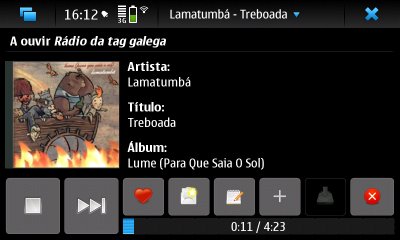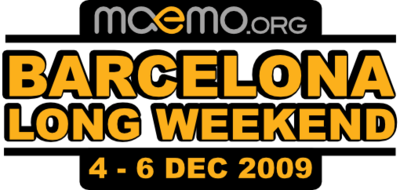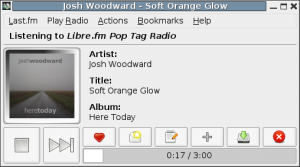Now that the N900 is (almost) here, many people ask me if I’m going to release a new version of Vagalume for Maemo 5.
Progress in Vagalume has been very slow this year, partly because of all the work we’ve been doing in Hildon Widgets.
Fortunately, the next Vagalume release will be out very soon. And yes, I know I had already said back in May that it would only take a few weeks, but this time it’s true 😉 This version is already working (you can grab the code from the GIT repository and compile it) and here’s a screenshot to prove it (click to enlarge):
 |
And, as I promised back in May, this time it comes with support for Libre.fm.
On another note, this weekend I’m flying to Barcelona for the Maemo-Barcelona Long Weekend.
 |
I’ll talk about GTK and the Maemo 5 UI, and my fellow Igalian Felipe will also be there, explaining how to port GNOME applications to Maemo.
In principle all training sessions are going to be in Spanish, but we’ll be around the whole weekend in case you want to talk to us.
You can see the agenda for the weekend here.
And that’s it for the moment. See you in Barcelona!


